Originally published in Trojan Today, August 2012.
Credible studies show an alarming percentage of North American dentists are victims of fraud and embezzlement with the average loss per fraud case being approximately $100,000. The 2005 ADA study reported a 52% fraud rate among US dentists prior to the recession; this figure is expected to rise as employees deal with challenging personal financial problems due to the economy. Dumolin and Associates survey found that 60% of surveyed dentists had been a victim of fraud. Dr. Gord Christensen states in his lectures that 90% of all dentists will be embezzled at some point in their career.
Dental fraud falls into two basic categories. One is theft from the dentist directly and includes receiving cash payments and pocketing the money, manipulating payroll, or “family account” dumping. The second category is theft from an insurance company in the name of the dentist. Insurance fraud occurs via up-coding of procedures, down-coding accounts, un-logged insurance claims, and overpayment of primary and secondary insurance companies.
I am asked regularly: why dentistry? Generally speaking, by their own admission, dentists are “poorly trained business owners.” In addition the overwhelming demand on the dentist to be the key revenue producer often leaves little time or energy to pay attention to the financial metrics and accounting controls. There are a couple of ways embezzlement is facilitated, both involving decisions of delegation One mode of delegation is a “do it all myself mentality” and causes “under-delegation.” Those dentists feel they must do everything alone while they juggle a team, daily operations, patient standard of care, facility, equipment, new materials, techniques, technology production, collections, payables, and payroll.
There are over twenty financial systems that drive the practice and it is impossible for dentists/owners to do it all by themselves without an administrative team supporting them. Conversely, an overwhelmed dentist may commit “over-delegation.” This occurs when ALL accounting controls, patient and insurance information access, and banking are put into the hands of one person without monitoring and reporting. This creates the environment of over-control and power for the employee who may become tempted, desperate, or dishonest … and the abundance of knowledge can build a gateway to embezzlement or fraud.
What do you do?
The answer to overcoming fraud can be simply stated. First, be aware of behavior trends of embezzlers. Second, prepare with proper multi-step hiring processes. Third, exercise prevention via daily attention, controlled authority, and systematic access.
Patterns of behaviors of fraudulent employees are a challenge to detect as they mimic a dedicated, hard-working, ideal employee. They tend to spend time alone in the practice ¬ arriving early in the morning, working lunch hours alone, and staying late. They rarely if ever take vacations as they are afraid things will come up while they are away that may raise red flags. They tend to be extremely territorial about their roles in the finances of the practice and offer to take on as many aspects as allowed. They are unreasonably resistant to change when it comes to updating or replacing the practice management software, involving an outside consultant, or in other ways that allow other team members to deal with the finances.
The proper preparation begins by giving time, commitment, and attention to the interviewing and hiring process and involves several steps to avoid hiring a desperate or dishonest person.
Steps Include:
- Doing a background check on anyone who will be handling money, banking, or collections.
- Calling the previous employer as a reference and asking about the candidate’s success with money management and character traits.
- Learning as much as possible about the candidate’s personal finances while honoring the laws of interviewing practices.
A dentist suspecting fraud and unsure what to do should obtain professional help. A dental fraud company that advises dentists, Prosperident, can be contacted to obtain a first responder checklist: www.prosperident.com. The company will begin by conducting a silent probe that is completed remotely without employee knowledge. If fraud is found they will help the dentist with lockdown and recovery. If there is NOT fraud, the staff won’t know their integrity was questioned and all can move forward in the practice operations with prevention systems.
You work hard to maintain the integrity of your office. Don’t let your earnings walk away because you’re too busy to notice.
- The prevention of fraud involves the following steps:
- Understand how to run reports from the dental software.
- Make use of the authority levels within the dental software.
- Post and track write-offs individually as opposed to one large amount. i.e. senior courtesy, family discount, PPO reduction, etc..
- Have each clinical person sign off on daily posting of codes and procedures.
- Review the practice record of transactions daily.
- Secure the point of sales terminals for debit and credit.
- Insist on record of daily bank deposits.
- Review the accounts receivable list and note credits or “write-off” of owed amounts.
- Print a monthly transactional report that shows all changes made to your data with additions and deletions.
- Require dual signatures for outgoing payables and checks drawn on the bank account if the office manager is managing money.
FMI about Lisa Philp: https://www.linkedin.com/in/lisa-philp/

